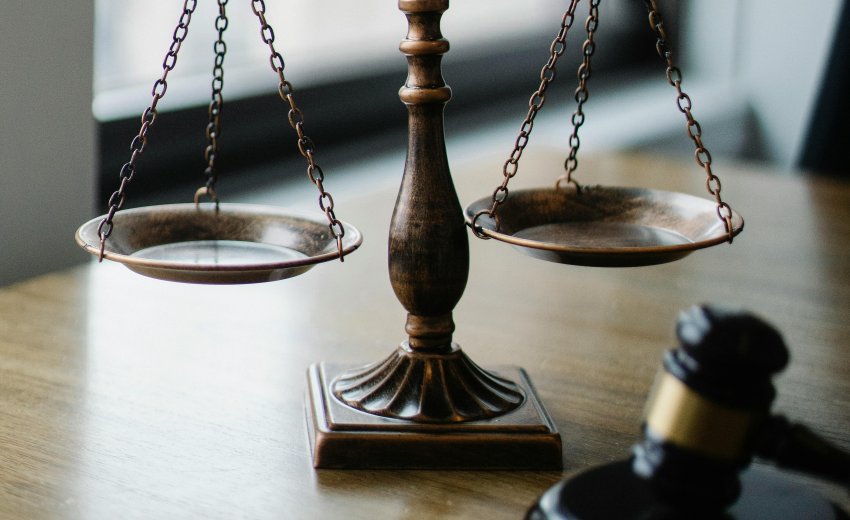Branches of the U.S. Military Fail to Provide Complete Religious Accommodations
Sikh Military Heritage
Sikh military heritage dates to its inception when Guru Gobind Singh formalized the Khalsa on Vaisakhi of 1699, initiating 80,000 Sikh warriors as sant - saphai, meaning “saint - soldier.” Many Sikhs, who are from the Panjab, can trace their bloodlines to warriors who resisted Alexander the Great effectively ending his conquest. Sikh regiments have historically displayed heroic valor and fought in World War I, World War II, and major conflicts around the world without compromising their principles and have worn gas masks to prevent gas poisoning successfully with beards intact.
Sikhs in U.S. Military Historically Permitted Beard and Turban
The Sikh Religion is the fifth largest worldwide, with up to 30 million adherents globally. The Sikh Coalition estimates at least 500,000 Sikhs reside in the USA while the American Sikh Congressional Caucus puts that number as 1 million. However, these numbers are vastly underreported in the United States Census. Sikhs have resided in the United States of America for more than 130 years. Sikhs have a historical relationship with the U.S. military that dates back to World War I when a Sikh could serve with religious articles of faith including a turban, beard, and uncut hair. However, due to policy changes within the military, Sikhs continue to face challenges in maintaining their distinct appearance while meeting mandatory military criteria.
On July 22, 1918. Bhagat Singh Thind, though not a United States citizen joined the United States Army with his turban and beard intact and served as a soldier during the First World War. He gained citizenship in 1936.
On July 26, 1948, Harry Truman, the U.S. president at that time, promised equality of opportunity for everyone, “without regard to race, color, religion or national origin,” who served in the United States armed forces. However, Sikhs had to leave the service unless willing to part with their turban and beard. Over time military requirements have changed and changed again.
In 1979, Colonel GB Singh served as a periodontist in the U.S. Army. When policy changes occurred, he retained his status by being grandfathered in.
Since, 1980 Sikhs wishing to serve in the US military have faced months and even years of litigation when suing case by case for Religious Accommodation (RA) to serve with turbans, beards, and hair intact, and for initiated Sikhs, to fulfill the requirement to wear the 5K’s articles of faith, which include kara, (iron bracelet) kirpan (short iron sword), kesh/keski (uncut body and facial hair, and hair of head with head covering) kanga (wooden comb) kachhera (undergarment). RA also includes dietary restrictions, practices, worship, and observance of religious holidays.
In 1984, Colonel Dr Arjinderpal Singh Sekhon, a Pulmonary Specialist joined the U.S. Army graduated from the U.S. Army College of Aviation Medicine and went on to become a Flight Surgeon while maintaining his Turban and beard.
In April of 2009, Captain Kamaljeet S. Kalsi, an Army doctor, and Army Reserve Second Lieutenant Tejdeep Rattan, a dentist joined forces with the Sikh Coalition to file an objection with the Department of Defense (DOD) and Inspector General to be allowed to continue serving with their religious articles of faith intact. Previously both had joined the service after being promised by recruiters that their Sikh articles of faith would pose no problems and had been allowed to serve when at West Point and Travis Air Force Base while fulfilling Sikh requirements of faith without issue. Policy changes however required them when called to active duty to cut their hair and shave their faces to enable them to wear a gas mask. In October of 2009, Kahlsi received Religious Accommodations.
On March 22, 2010, Rattan finally received an exemption after his graduation. In November of 2010. following his graduation Specialist Lamba also received Religious Accommodations.
In 2015, the Army granted Captain Simratpal Singh temporary Religious Accommodations.
In 2016, a federal court granted Captain Simratpal “Simmer” Singh permanent RA after more than a year of litigation and 10 years after joining up. In 2016 following litigation, U.S. Army Reserves Specialist Harpal Singh also won a long-term RA. In the summer of 2016, MA National Guard, Specialist Kanwar Singh, and Ghotra (VA National Guard) Private Arjan Ghotra (VA National Guard) each received RA for Army Basic Combat Training.
In January of 2017, an update to Army regulations allowed Muslim women to wear religious head coverings and Sikh soldiers to wear turbans and keep beards worn at specified lengths. Following litigation, U.S. Army Specialist Gurpreet Gill received Religious Accommodations three years after joining up.
In June of 2019, Airman Harpreetinder Singh Bajwa who had enlisted six months earlier, learned about the Army exemptions and pursued litigation with the U.S. Airforce to become the first airman to be granted Religious Accommodations. In September of 2019 Airman 1st Class Sunjit Singh Rathour became the first Sikh in the Airforce to complete both basic and advanced technical training with Religious Accommodations.
In February of 2020, Airman 1st Class (A1C) Gurchetan Singh became the first Sikh of the Air National Guard to obtain Religious Accommodations. In June of 2020, Air National Guard Anmol Narang graduated from the U.S. Military Academy as the first Sikh permitted Religious Accommodations.
In 2021 between March and November three Marine recruits, Aekash Singh, Jaskirat Singh, and Milaap Singh Chahal who had been accepted for service with Religious Accommodations had to go through months of litigation to sue for exemptions to maintain their un-cut hair, beard, and articles of faith during boot camp training. Litigation began in April of 2021. Another Marine, Captain Sukhbir Singh Toor who had joined in 2017 had been forced to shave during his training because of policy restrictions came up for promotion in 2021. He joined the other three in suing for Religious Accommodations.
In December of 2022, after nearly two years of litigation, Chahal and Jaskirat Singh both received the boot camp training exemptions. Aekash Singh changed his plans to enroll in Officer Candidate School and had to return for reconsideration of his application for RA to the district court. Captain Toor received limited Religious Accommodations with a prohibition on wearing a beard whenever deployed along with other various restrictions.
The revised 2024 policies for U.S. Marines while broadening their scope, continue to mandate limitations to Religious Accommodations, as do all other branches of the U.S. Military forces.
Requests for Religious Accommodations and Exceptions
Recruiters promise signing bonuses, educational loans, and home loans. However, disappointment ensues when recruits learn that all U.S. Armed Forces require an application of Religious Accommodation for anyone wishing to retain long hair and beard. Although the process of litigation has been streamlined, it can still be lengthy requiring 30 to 60 days with appeal times of 5 to 10 days. Results are conditional.
I spoke to Pavnit Singh, Pavnit Singh DoD Civilian Contractor, and asked if he had to obtain Religious Accommodations so that he could wear his turban, keep his beard, and Articles of Faith. He explained.
“I have Civilian duty only so no RA is needed. The DOD is the administrative department of all US military forces including Army, Navy, Marines, Airforce, Space Force, and Coast Guard. Each branch has three components, Active Duty, National Guard, and Reserves. Personnel could be considered civilian while in the reserves, however whenever someone is sent to a ‘theatre’ like Iraq for combat, that person is considered to be on active duty, and they will be subject to any limitations imposed.”
The U.S. Military Department of Defense (DOD) claims to respect accommodation for religious practices according to the Religious Freedom Restoration Act (RFRA):
- “The DOD places a high value on the rights of members of the Military Services to observe the tenets of their respective religions or to observe no religion at all. It protects the civil liberties of its personnel and the public to the greatest extent possible, consistent with its military requirements, in accordance with DoD Instruction (DoDI) 1000.29 (Reference (c))”.
However, DOD policy is ambiguous:
- “It is DoD policy that requests for accommodation of religious practices should be approved by commanders when accommodation will not have an adverse impact on military necessity to include mission accomplishment, military readiness, unit cohesion, standards, or discipline.”
- “The new policy states that military departments will accommodate individual expressions of sincerely held beliefs (conscience, moral principles, or religious beliefs) of service members unless they have an adverse effect on military necessity to include military readiness, mission accomplishment, unit cohesion, and good order and discipline.
- “Service members submitting requests for accommodation of religious practices will comply with the policy, practice, or duty from which they are requesting accommodation, including refraining from beginning unauthorized grooming and appearance practices, wearing unauthorized apparel, or applying unauthorized body art, unless and until the request is approved.”
These clauses make it possible to revoke at any time for specified reasons, permission previously granted. For instance:
The U.S. Navy Religious Accommodations Requests stipulate a turnaround of 30 to 60 days and allow commanders to authorize individuals to provide their own supplemental dietary rations with RA exceptions:
- “Religious accommodations remain active, and a part of a Sailor’s permanent record for the length of their career. They are however, subject to review, suspension or revocation, in whole or in part, any time there is a change in the circumstances upon which the initial religious accommodation was based (e.g., new duty assignment, temporary duty or other material change in circumstances).”
- “Religious apparel will be authorized for wear with the uniform, except when the item is not neat and conservative, its wearing will interfere with the performance of the member's military duties or is specifically prohibited.”
The U.S. Marines Religious Accommodation Requests stipulate a turnaround time of 30 to 60 days depending on individual circumstances on a case-by-case basis with appeal periods of 5 and 10 days and may be granted in full or in part. RA remains in effect for the duration of their military career with exceptions:
- “The qualified applicant or service member will be informed in writing of any conditions or limitations placed on the approval to meet the compelling governmental interest in mission accomplishment. For example, conditions related to deployment, health and safety issues relative to particular assignments or types of assignments, or training events or ceremonial occasions that require a service member to conform to military standards.”
- “An approved accommodation may be subject to review and rescission, in whole or in part, at any time, based upon a determination that the circumstances and conditions under which the grant of accommodation was approved have changed (e.g., deployment, new duties, or other material change in circumstances).”
The U.S. Coast Guard Religious Accommodations Request is requested by using the procedures outlined for obtaining reasonable accommodation.
- “Coast Guard policy is to provide reasonable accommodations to the observances of the religious faith practiced by individual members when these doctrines or observances will not have an adverse impact on military readiness, individual or unit readiness, unit cohesion, health, safety, discipline, or mission accomplishment. Accommodation of a member’s religious practices cannot be guaranteed and is subject to operational necessity.”
- “Under exigent circumstances and in furtherance of a compelling governmental interest due to operational necessity, when time is of the essence and no less restrictive means of religious accommodation are available, a commander may temporarily modify or suspend accommodations granted, upon notice to the service member concerned and without benefit of appeal.”
The U.S. Army Religious Accommodation Requests stipulate a turnaround time of 30 days for as of February 1, 2024. However:
- “Requestors (other than pre-accession requests) must continue to comply with A$ 670-1 standards for non-accommodated Soldiers while request is pending.”
- “Commanders are notified of any changes in equipment or policies which may affect accommodations.”
- “Disapprovals are final. Subsequent requests are only considered if based on substantially different grounds or supported by substantially new evidence.”
The U.S. Airforce and U.S. Space Force Religious Accommodation Requests stipulate a turnaround of 30 to 60 days with appeal periods of 30 days and permit pre-accession requests prior to enlisting. RA waivers remain in effect for the duration of the military careers with exceptions:
- “Compelling governmental interest due to operational necessity, when time is of the essence and no less restrictive means of religious accommodation are available, a commander, at no lower than the Summary Court-Martial Convening Authority level, over a Department of the Air Force member may temporarily modify or suspend accommodations granted, upon notice to the member concerned and without benefit of appeal.”
Notably one of the arguments used by Sikhs during litigation requesting to retain beards had to do with a Medical Accommodation ruling for pseudo folliculitis barbae, a condition that causes a painful rash and bumpy beard stubble. This ruling has subsequently been changed from a permanent ruling to a temporary ruling. Those medically accommodated must now periodically shave to prove whether or not they continue to be affected by the condition. Consequently, his limitation weakens future arguments for keeping beards by Sikhs.
Resources for Help with Military Religious Accommodations
Each branch of the Military has specific guidelines on how to apply for Religious Accommodations. Usually, this involves an interview with a chaplain followed by a commander who asses the sincerity of the applicant and their religious beliefs. When legal assistance is needed for litigation The Sikh Coalition can offer guidance and assistance. Becket Religious Liberty for All has been another resource for Sikhs.





